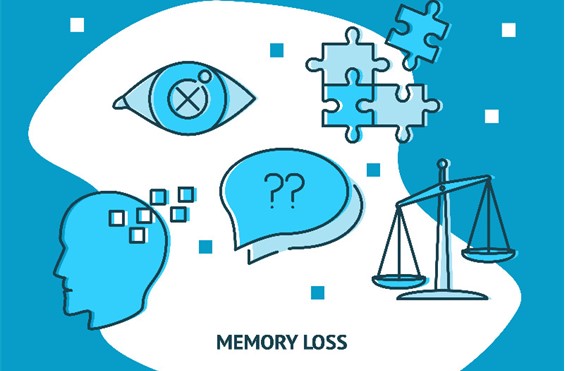Signs of Cognitive Impairment Begin with Forgetfulness
More often than not, forgetfulness is a common issue we all face. It’s easy to forget where the TV remote is, where housekeys were left, or what we had for dinner last week.
Dr. David Zagzag explains that memory loss can happen at any age and to those who are otherwise considered healthy. Forgetting facts learned over time, having the answer to a question on the tip of one’s tongue, or general absentmindedness are all, for lack of a better word, relatively normal.
So, when should someone be concerned that forgetfulness may be an indication of cognitive impairment and not simply tied to the normal aging process? Here’s what everyone should know.
Forgetfulness and Memory Loss are Different Conditions
Usually, there should not be a huge concern over fleeting moments of absentmindedness and forgetfulness. It may be related to stress or age — or it could be a random brain fog moment.
As humans age, the ability to multitask — such as watching TV or having a conversation while cooking — is diminished.
It’s when forgetfulness changes over into consistent memory loss that cognitive impairment may become an issue. The best first step is to speak with a physician and outline the specific types of memory loss that are occurring.
Often, a friend, family member, or spouse can pinpoint changes better than the one who is experiencing them.
Specialists can shed further light. If mild cognitive impairment is suspected, medical specialists may perform different diagnostic tests to see if there is a root cause.

Mild Cognitive Impairment
In general, mild cognitive impairment refers to early declines in memory, reasoning, and thinking — and it is almost always tied to the normal aging process.
This may also be the result of a serious medical condition, such as a stroke or contracting COVID-19.
This mild impairment takes on many forms — and doesn’t always include memory issues. Other forms are a decline in reasoning or judgment. Some people with these mild impairments might experience changes in language, such as a delay in speaking or understanding another’s speech.
It’s important to keep in mind that this does not always lead to more serious conditions tied to aging, such as dementia or Alzheimer’s disease.
Some people who experience mild cognitive delays may see it improve over time while it may become worse in others. Other conditions may be tied to these issues, including anxiety, depression, a lack of general interest, and a shorter temper.
Common Indicators of Cognitive Impairment
While mild cognitive impairment impacts each individual differently, there are some common signs that it is responsible for changes in mental function.
These include forgetting things much more frequently than usual, the lack of ability to follow movie and book plots and having difficulty understanding and following a short or long conversation.
Poor judgment is a clear indicator, as is not being able to navigate through areas one knows well. It can be challenging to make a decision or finish a task. A big sign that forgetfulness is leading to something more is when a person starts missing social events or appointments.
If you, or someone you love is experiencing one or more of these symptoms related to forgetfulness, it’s best to see a doctor to discuss whether it’s indicative of cognitive decline.
Disclaimer: Always consult with a qualified and licensed physician. The content and information on this website is not intended to be a substitute or to replace professional medical advice for accurate diagnosis or appropriate treatment. Readers are encouraged to confirm the information contained herein with other sources, not to rely on this website for emergency medical treatment and to carefully review the information provided with their professional health care provider. In short this website is not an attempt to or should not be used to make a diagnosis, to replace or to overrule a qualified health care provider’s judgment.



